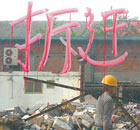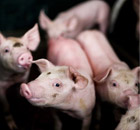Government and Policy
Cross-Straits talks held to help boost economic relations
By Xin Dingding (China Daily)
Updated: 2010-01-27 07:36
 |
Large Medium Small |
The Chinese mainland and Taiwan held their first talks in Beijing yesterday to pave the way for a long-awaited, free-trade-like deal that is expected to boost cross-Straits economic ties.
According to the agenda, negotiators were expected to evaluate the results and proposals of a joint research by academic institutions on both sides on the economic cooperation framework and discuss its official name and basic structure.
"We hope today's meeting can end in common understanding on basic principles and procedures for the negotiation of the pact, to get off to a good start for the smooth signing of the cooperation framework," said Zheng Lizhong, ARATS executive vice-president.
Zheng, who led the mainland delegation, said the pact is intended to make systematic arrangements to normalize mainland-Taiwan economic ties and bring the economies of both sides closer.
Research on both sides showed that the economic pact might exert certain negative influences on a number of industries on the mainland and in Taiwan, but it would benefit cross-Straits trade and economic development in the long run.
Liu Guoshen, head of the Taiwan Institute at Xiamen University, told China Daily that "taking good care of the enterprises subject to the negative influences" is critical to the deal's success.
As the ECFA will cut import tariffs and scrap Taipei's current restrictions on many mainland investments and products, it will reconstruct the economy on both sides. Some industries may face competition from imports and enterprises will need to change their strategy and products, he said.
"It must be known that the negative impact will not only happen to Taiwan, but also affect mainland industries," he said.
Both sides should give favorable policies to the affected enterprises, to help them change products or make up for their losses. Policies should also be adopted to make new arrangements for employees in these industries if needed, he said.
"Only when this issue is handled prudently and solved well, will the deal get a majority support from Taiwan people," he said.
Both Zheng Lizhong and Kao Koong-lian, SEF vice-chairman and secretary-general who led the Taiwan delegation, said yesterday the issue would be handled through a phased and flexible approach.
The mainland is Taiwan's biggest trade partner and its largest export market. Taiwan business people have invested more than $70 billion in 70,000 projects on the mainland. More than 500,000 people from the island, which has a population of 23 million, now work and live on the mainland.
However, the Jan 1 formal inauguration of the "ASEAN plus the mainland" free trade area that allows zero tariffs on trade between the Chinese mainland and ASEAN countries has put Taiwanese exporters at a disadvantage.
Faced with the possible threat, Taiwan leader Ma Ying-jeou of the ruling Kuomintang initiated the ECFA last February, covering tax reductions, market access, investment and trade.
"The industrial and commercial circle in Taiwan is holding high expectations of the deal If Taiwan's current restrictions are not lifted, the island will face a declining competence and see its employment and economic growth harmed," Liu Guoshen said.
Li Jiaquan, a senior researcher with the Institute of Taiwan studies at the Chinese Academy of Social Sciences, said the voice of dissent made by the opposition Democratic Progressive Party has no sound reasons backing it.
"The DPP is turning the economic issue into a political one in a bid to prevent itself from being marginalized," he said.
Xinhua contributed to the story












